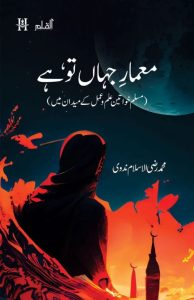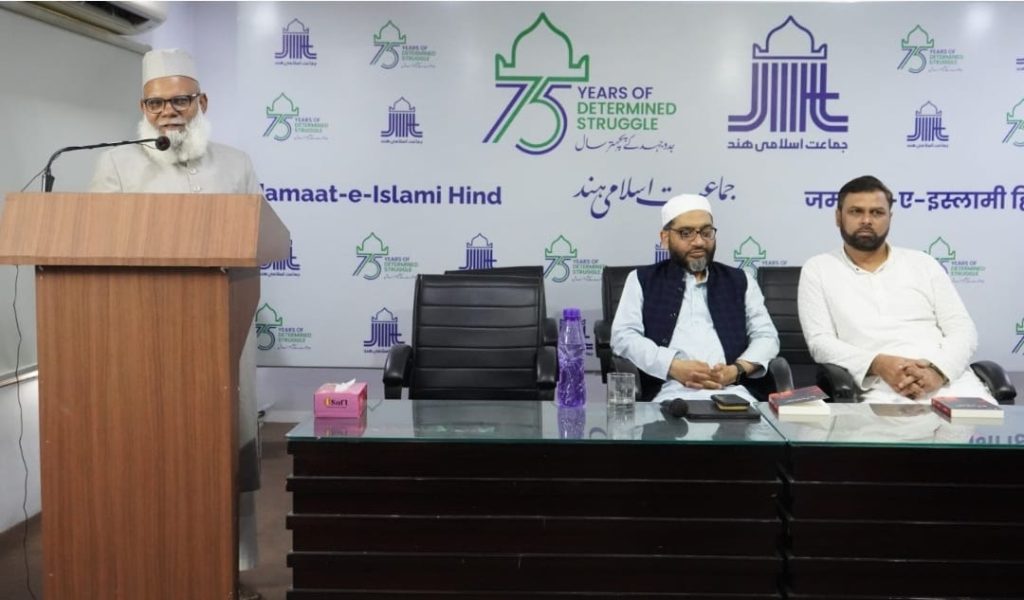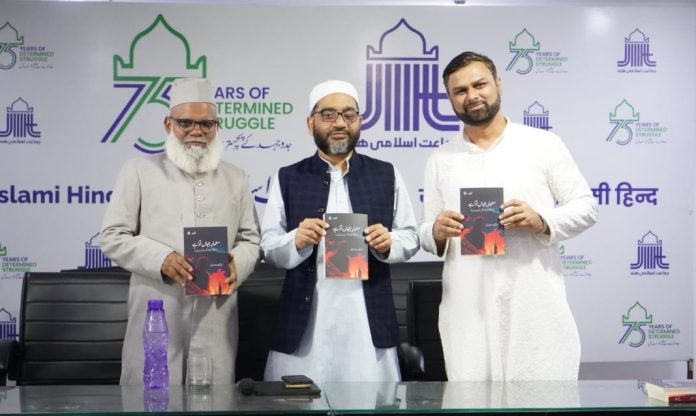 New Delhi – A momentous and profound book launch event resonated with intellectual and cultural significance as it unveiled Mimar-e-Jahan Tu Hai, a masterpiece authored by the prolific writer, Dr. Maulana Muhammad Raziul Islam Nadvi. This distinguished occasion unfolded at the headquarters of Jamaat-e-Islami Hind (JIH) on August 28.
New Delhi – A momentous and profound book launch event resonated with intellectual and cultural significance as it unveiled Mimar-e-Jahan Tu Hai, a masterpiece authored by the prolific writer, Dr. Maulana Muhammad Raziul Islam Nadvi. This distinguished occasion unfolded at the headquarters of Jamaat-e-Islami Hind (JIH) on August 28.
The aura of the event was elevated by the esteemed participation of Syed Sadatullah Husaini, Ameer Jamaat-e-Islami Hind, who formally inaugurated the book. Maulana Raziul Islam Nadvi, a luminary renowned for his diverse and voluminous literary contributions in Urdu, has crafted this remarkable work, adding another jewel to his collection. The gathering was further enriched by the presence of Mr. Ateequr Rahman, Secretary of JIH.
Amidst the engaging discourse of the event, a thought-provoking query emerged from a participant, focusing on the societal role of women. In response, Mr. Husaini eloquently dispelled misconceptions and affirmed that the realm of virtue and moral guidance is a shared responsibility of both genders. He ardently emphasised that women’s influence transcends domestic confines, with a paramount obligation to guide and nurture, not only within their own homes but also in the society. He asserted that this imperative catalyses positive change in society.

The event profoundly resonated with the insights shared by Maulana Raziul Islam Nadvi. Expressing his heartfelt gratitude, he underscored the book’s critical essence. He illuminated the depth of its contents, encompassing a comprehensive exploration of religious principles and decorum relevant to intricate issues. These issues encompass the nuances of hijab, women’s presence at places of worship, dynamics within combined religious gatherings for both genders, unaccompanied travel, employment, and the intricacies of joint family dynamics. These aspects, often scrutinized within traditional religious societies, are meticulously illuminated within the book’s pages.




